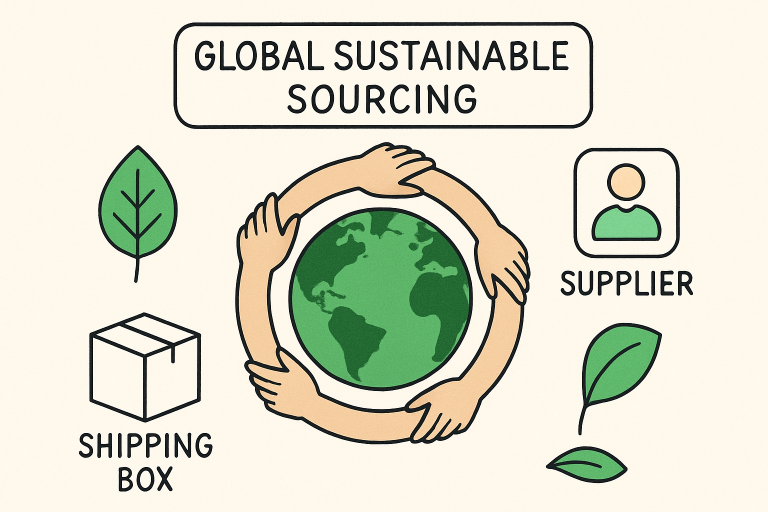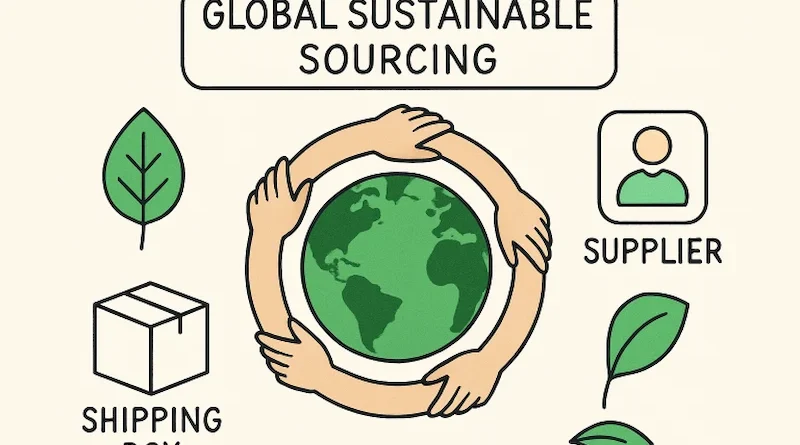Sustainable Product Sourcing for Wholesale Buyers
In today’s competitive landscape, sustainability is more than a fleeting trend—it’s an essential pillar of successful wholesale business. As consumers grow savvier and regulations tighten, the demand for responsibly sourced products continues to surge. For wholesale buyers in particular, integrating sustainability into sourcing strategies provides a pathway not only to compliance but also to differentiation and long-term resilience. Whether your focus is on eco-friendly textiles, biodegradable packaging, or wholesale coffee beans in California, sustainable sourcing can unlock new market opportunities while reducing operational risks.
The journey toward sustainability begins with informed choices at every link of the supply chain. Evaluating suppliers for ethical practices, seeking out renewable materials, and refining logistics can all play pivotal roles. Ultimately, transparency and traceability are the keys to earning trust—both from retail partners and end consumers. By taking proactive steps, wholesale buyers help drive industry-wide change while safeguarding their own future growth.
Understanding Sustainable Sourcing
Sustainable sourcing is the practice of procuring goods that are produced, processed, and transported with minimized environmental impact and maximum social responsibility. This means considering resource conservation, using renewable or recycled materials, upholding fair labor practices, and striving for lower carbon emissions at every step. Sustainable sourcing doesn’t just benefit the planet—it helps communities and builds consumer loyalty through shared values.
Why Sustainability Matters in Wholesale
The wholesale industry plays a crucial role in shaping the upstream and downstream effects of product supply chains. According to The New York Times, approximately 10% of global carbon emissions stem from the wholesale and retail supply chain, making it a significant area for potential improvement. Furthermore, a rising number of wholesale buyers—estimated at 45%—now prefer suppliers with verified sustainability credentials. Adopting sustainable practices not only reduces the collective environmental footprint but also aligns businesses with the expectations of consumers and regulators.
Market research shows that green credentials frequently serve as a tie-breaker for wholesale buyers when supplier choices are otherwise similar. Companies that take proactive steps to demonstrate environmental stewardship can stand out, win contracts, and access capital more easily, as investors and lenders increasingly seek proof of sustainability.
Key Strategies for Sustainable Sourcing
- Assess Supplier Practices: Request documentation of sustainability policies, review third-party certifications (such as Fair Trade or Rainforest Alliance certification), and look for evidence of ongoing improvement.
- Prioritize Eco-Friendly Materials: Source products made from recycled, biodegradable, or rapidly renewable resources whenever possible. This not only reduces raw material extraction but also supports circular economy models.
- Implement Energy-Efficient Logistics: Select transportation options and warehouse locations that minimize carbon emissions. A preference for rail or hybrid vehicles, along with optimizing shipment volumes, can deliver direct sustainability gains.
- Monitor and Report: Create clear sustainability key performance indicators (KPIs), track them consistently, and share progress reports with stakeholders. This transparency reinforces brand credibility and can draw positive media attention.
Leveraging Technology for Transparency
Digital transformation is making it easier for wholesale buyers to build sustainable supply chains. Platforms like Green Sourcing Hub help connect buyers with pre-vetted suppliers offering certified sustainable materials. Advanced software tools also enable real-time monitoring of shipments, carbon tracking, and verification of compliance with global sustainability standards. With such technology, buyers can confidently validate supplier claims and quickly adapt to regulatory changes.

Building Strong Supplier Relationships
Success in sustainable sourcing relies on meaningful partnerships, not one-off transactions. Wholesale buyers should engage suppliers in honest conversations about mutual sustainability goals—and provide education or incentives to encourage best practices. Creating formal agreements around responsible sourcing and supporting improvement initiatives builds trust and long-term resilience for everyone involved.
Overcoming Common Challenges
Pitfalls such as greenwashing (the practice of making misleading sustainability claims) and supply chain opacity can undermine even the most well-intentioned sustainability initiatives. Overcoming these challenges requires vigilance and ongoing due diligence:
- Conduct Thorough Due Diligence: Regularly audit supplier practices and require independent third-party certification to confirm claims.
- Educate Your Team: Train procurement and compliance staff to recognize authentic sustainability standards and distinguish them from superficial marketing claims.
Conclusion
Integrating sustainable sourcing principles into wholesale operations offers a dual benefit: environmental stewardship and business growth. By embracing strategic sourcing approaches, investing in technology, and fostering open supplier partnerships, wholesale buyers can protect their reputation, meet the evolving needs of stakeholders, and drive meaningful change within the industry. Today’s investments in sustainability are not just about compliance—they’re about securing future market relevance and resilience.
Visit the rest of the site for more interesting and useful articles.

